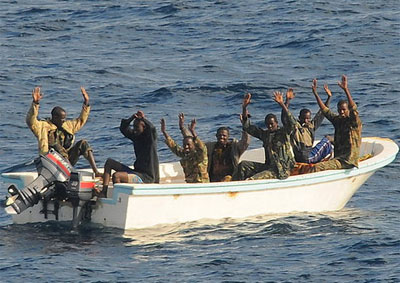 A rumor has been circulating that some prominent freight forwarders have been debarred by the Directorate of Defense Controls (“DDTC”) and can no longer handle defense articles listed on the United States Munitions List.
A rumor has been circulating that some prominent freight forwarders have been debarred by the Directorate of Defense Controls (“DDTC”) and can no longer handle defense articles listed on the United States Munitions List.
This rumor starts with the appearance of six freight forwarders on the Excluded Party List System. On February 16, the ELPS added entries for Bax Global, Inc.; Ceva Logistics LLC; EGL, Inc.; Kuhne and Nagel International AG; Panalpina, Inc.; and Schenker AG. With the EPLS,the important thing is the code because it tells you both the reason that the party is on the list and the precise treatment that is to result from the listing. In the case of these six freight forwarders, the codes are A and A1.
Code A is used when the reason for debarment is conviction of, or civil judgment for, violation of antitrust laws and the treatment resulting under that code is that the listed party is prohibited from receiving government contracts and from directly or indirectly receiving benefits under Federal nonprocurement programs. Code A1 is just the proposed version of A. The six listed freight forwarders pleaded guilty to antitrust charges which is what led to this debarment from government contracting and grants.
Had this been a debarment of the parties from handling defense articles in export contracts, the code would have been UU. But it wasn’t and yet I’ve heard reliable confirmation of the rumor that the DDTC is saying that none of the six freight forwarders can be involved in defense exports.
On what basis does DDTC turn a guilty plea on an antitrust charge into a complete debarment from export? Apparently on the grounds that by appearing on the EPLS, a company is an ineligible party under section 120.1(c) of the ITAR and that therefore dealing with them is a violation of section 127.1(c). Section 120.1(c) says:
U.S. persons who have been convicted of violating the criminal statutes enumerated in §120.27, who have been debarred pursuant to part 127 or 128 of this subchapter, who are the subject of an indictment involving the criminal statutes enumerated in §120.27, who are ineligible to contract with, or to receive a license or other form of authorization to import defense articles or defense services from any agency of the U.S. Government, who are ineligible to receive export licenses (or other forms of authorization to export) from any agency of the U.S. Government, who are subject to Department of State suspension/Revocation under §126.7(a)(1) through (a)(7) of this subchapter, or who are ineligible under §127.7(c) of this subchapter are generally ineligible.
The six freight forwarders pleaded to antitrust charges which are not the criminal statutes enumerated in § 120.27. Nor have they been debarred pursuant to 127 or 128 which requires a finding of a violation of the Arms Export Control Act. DDTC is basing its position, apparently, on this language quoted above relating to U.S. persons:
who are ineligible to contract with . . . any agency of the U.S. Government.
DDTC reads this to make automatically ineligible under 120.1(c) any persons “who are ineligible to contract with . . . any agency of the U.S. Government.”
Section 2778(g) of the Arms Export Control Act does have language in 2778(g)(3) which says that DDTC “may” refuse to grant licenses to persons ineligible to contract with any agency of the U.S. government. However, 2778(g)(4) only requires the denial of licenses to parties who have violated the enumerated statutes or who are ineligible to receive export licenses from any federal agency, neither of which is the case here.
The absurdity of DDTC’s position of automatically denying export licenses to any party “ineligible to contract with . . . any agency” cannot be involved in defense exports is underlined by the fact that this position would mean that companies that are not registered in the Central Contractor Registration or who do not have a DUNS number, and who are therefore ineligible to contract with any government agency, must also be automatically excluded from defense exports. Worse yet, it would be a criminal offense to use in any such export transaction a company that does not have DUNS number or that has not registered with the federal government’s CCR.
Naturally, if DDTC takes a hard line here, the most significant problem is that this will create an undue burden on defense exporters given the prominence of these six companies. Ironically, it will also mean that the antitrust conviction will decrease competition in the defense export industry, certainly not something that the antitrust laws being enforced here intend to occur. And it will likely drive up prices for freight forwarding services, also not a consequence consistent with antitrust enforcement. Since the AECA does not require this result here, DDTC should exercise its discretion to permit these companies to continue their involvement in providing freight forwarding services to licensed defense exporters and to make clear that only parties convicted of violating the statutes enumerated in the AECA or who have been held by other agencies to be ineligible to receive export licenses are automatically prohibited from involvement in defense exports.


 Posted by
Posted by  Category:
Category: 


 In
In  A rumor has been circulating that some prominent freight forwarders have been debarred by the Directorate of Defense Controls (“DDTC”) and can no longer handle defense articles listed on the United States Munitions List.
A rumor has been circulating that some prominent freight forwarders have been debarred by the Directorate of Defense Controls (“DDTC”) and can no longer handle defense articles listed on the United States Munitions List.  Clarence Darrow once said that a man who represents himself has a fool for a lawyer and an idiot for a client. And that seems to be aptly demonstrated by the antics of Londoner Guy Savage who is waging a pro se war against his extradition from the U.K. to the United States in connection with allegations that he smuggled gun parts out of the United States to his business in the United Kingdom without a license. These antics are richly detailed in a recent
Clarence Darrow once said that a man who represents himself has a fool for a lawyer and an idiot for a client. And that seems to be aptly demonstrated by the antics of Londoner Guy Savage who is waging a pro se war against his extradition from the U.K. to the United States in connection with allegations that he smuggled gun parts out of the United States to his business in the United Kingdom without a license. These antics are richly detailed in a recent 

